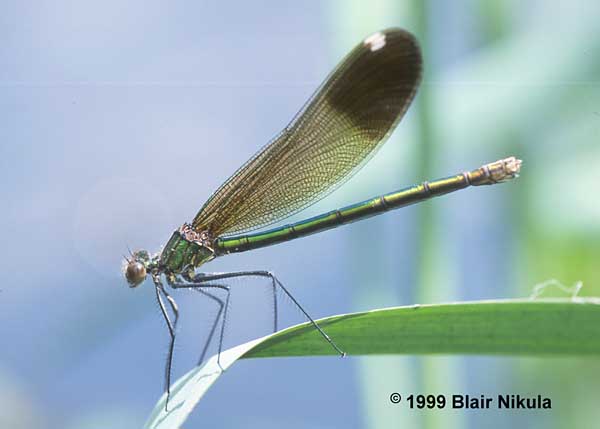Bugs in the Water
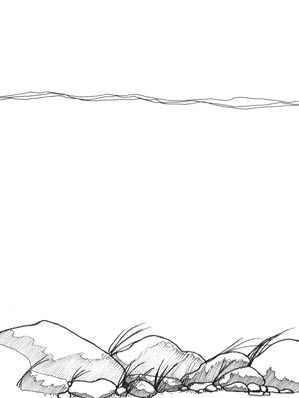
Many of the insects you see start their life in water. The young stage of these insects is usually called a larvae or nymph. Eventually the ones who are going to, leave the water and the skeleton they used there. They have different ways of coming to land – some swim to the surface of the water and shed their old skeleton there while others crawl out onto a rock or piece of grass. If you are walking next to a river or stream you can often see these old skeletons on the edge. Regardless of how they do it, this time of changing skeletons is very vulnerable because they cannot do much to protect themselves, like fly away. One of the reasons is they have to wait for their wings to be ready for the job.
But once the wings are ready they can fly like crazy! And what a beautiful sight it can be to see these little critters come out of the water hundreds at a time. These mass migrations from the water to the air are often called “hatches.”
Stoneflies
Order – Plecoptera
In the Water
WHAT DO THEY LOOK LIKE?
- They are always very flat
- Filament-like gills present near their legs
- They always have 2 tail parts
WHERE IN THE WATER DO THEY LIVE?
- Underneath rocks in fast flowing water.
WHAT DO THEY EAT?
- Most eat algae and bacteria or leaves that they shred
- Some eat other insects
WHO EATS THEM?
- Fish, Frogs, Birds, Other insects
HOW LONG DO THEY LIVE?
- Between 1 and 3 years – molting between 10 and 30 times
HOW CLEAN DOES THEIR WATER NEED TO BE?
Need VERY clean water and are used to evaluate water pollution and stream health. When there is not a lot of oxygen in the water, many species will do what looks like a push-up to increase the flow of water past their gills and help them breathe.
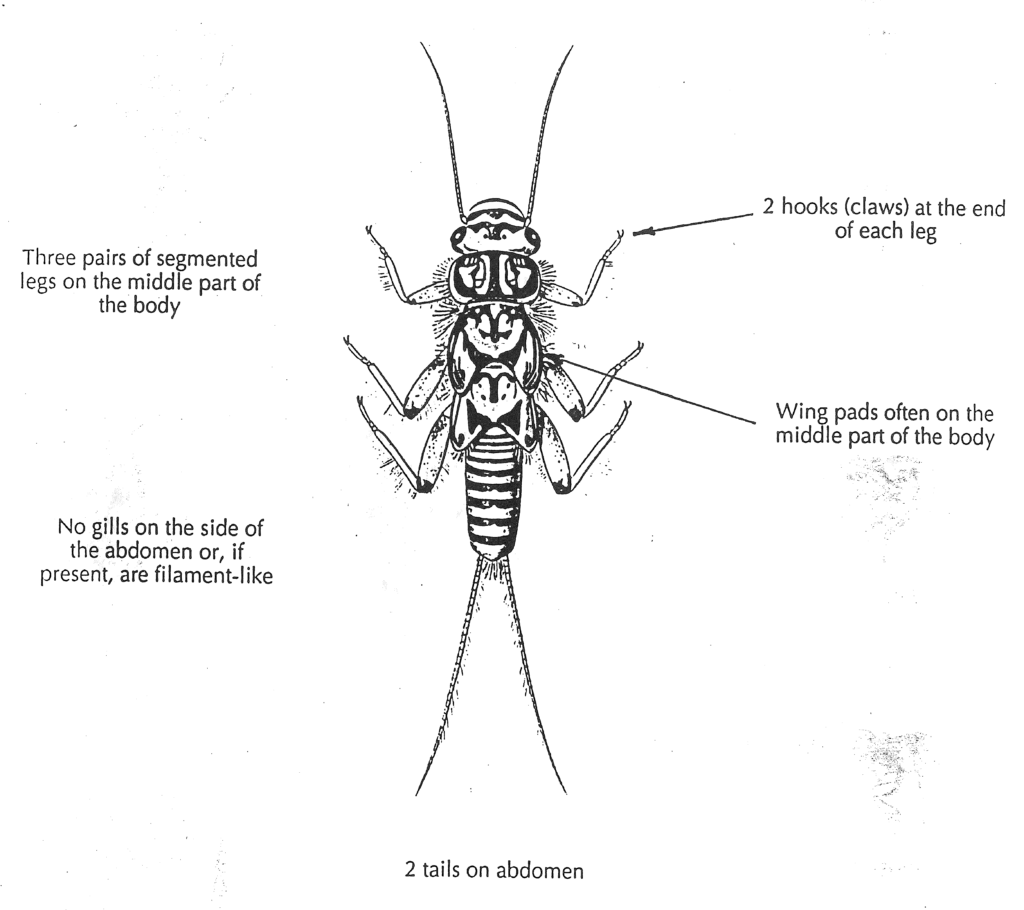
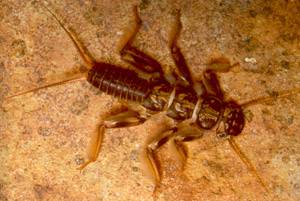
Leaving the Water (Emerging)
- Without exception, they emerge by crawling out of the water onto rocks, sticks, or other shoreline objects.
- In some species the adult emerges from the nymph within inches of the water.
- Others crawl up to ten feet back into the woods.
This keeps stoneflies safe from being eaten by trout at a stage when mayflies and caddisflies are the most vulnerable.
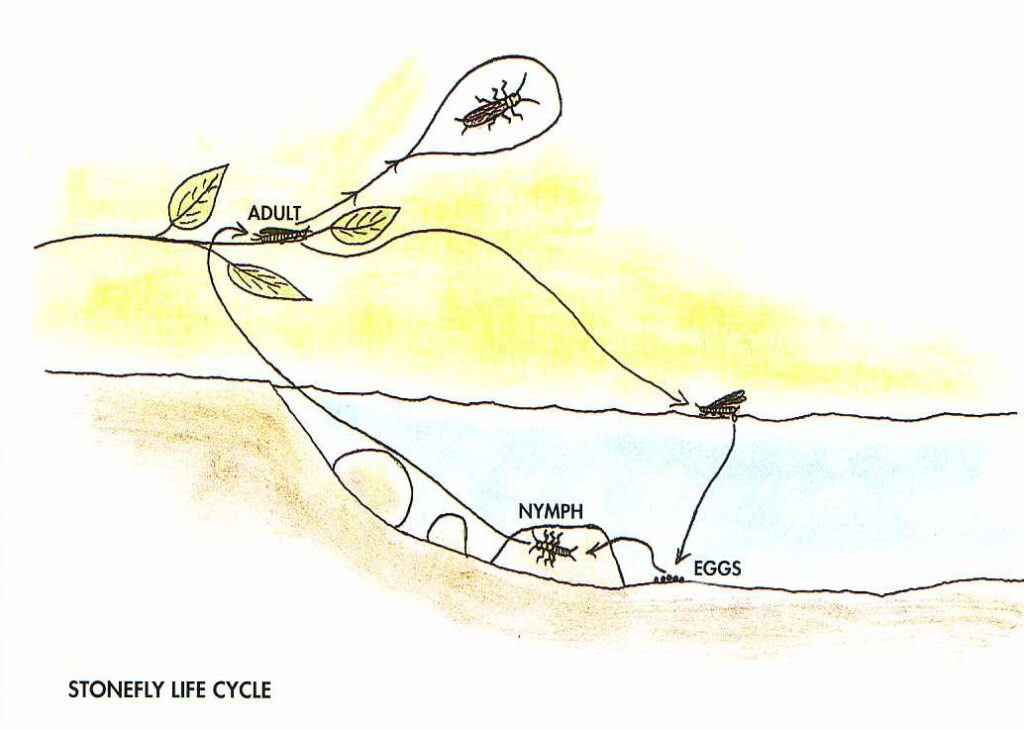
On the Land
WHAT DO THEY LOOK LIKE?
- Wings are folded flat over the back
- They have 2 tail parts
WHAT DO THEY EAT?
- Algae or lichens
WHO EATS THEM?
- Birds, Other insects
HOW LONG DO THEY LIVE?
- Between 1 and 4 weeks
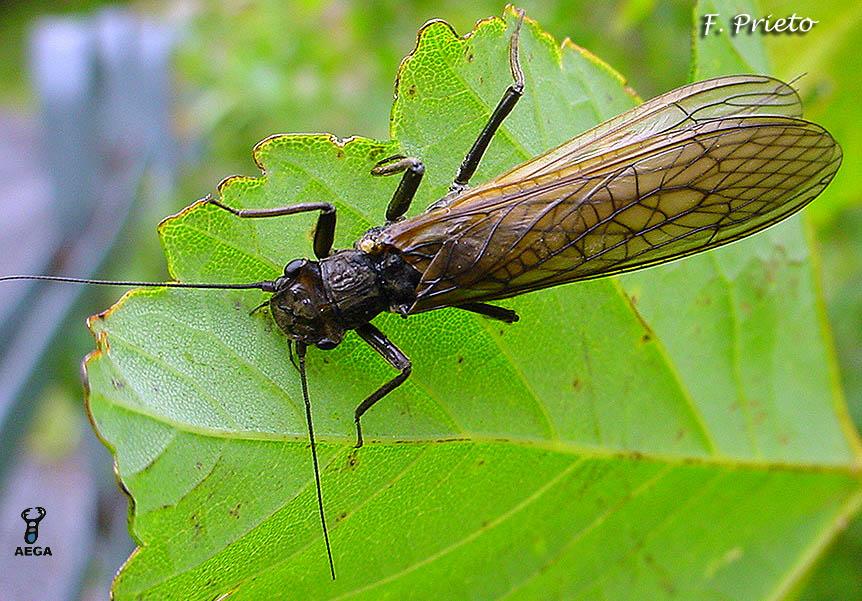
αmáhkehis – Mayflies
Order – Ephemeroptera
In the Water
WHAT DO THEY LOOK LIKE?
- They are usually quite flat
- Their color usually blends in with their habitat
WHERE IN THE WATER DO THEY LIVE?
- Most are flat because they live on rocks or the stream bottom in fast flowing water.
- Others burrow into the bottom of the stream, live in the vegetation or are active swimmers
WHAT DO THEY EAT?
- Most eat algae and bacteria
- Others filter stuff out of the water, scrape vegetation off the rocks or eat other insects
WHO EATS THEM?
- Fish, Frogs, Birds, Other insects
HOW LONG DO THEY LIVE?
- As little as 4 weeks and as long as 4 years
HOW CLEAN DOES THEIR WATER NEED TO BE?
- Most need VERY clean water. Are used to evaluate water pollution/stream health.
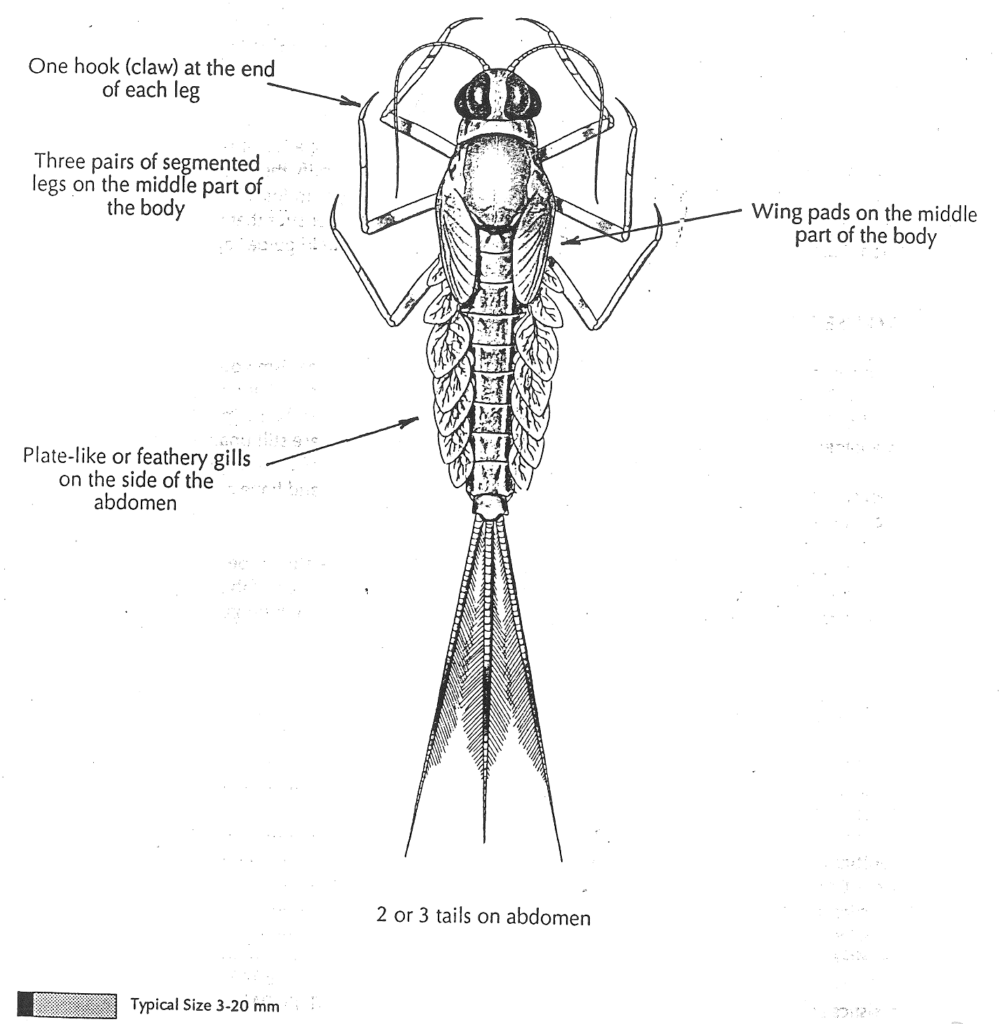
Leaving the Water (Emerging)
- They float to the surface, their back splits open and wings come out. This is a VERY vulnerable time.
- Once strong enough, they fly to shelter.
- They molt again so that their legs and tail can grow longer. They are the only insect that do this!
In some species almost the entire population will emerge at once – this is usually called a hatch. Hatches are a great time for imitation with fly fishing.
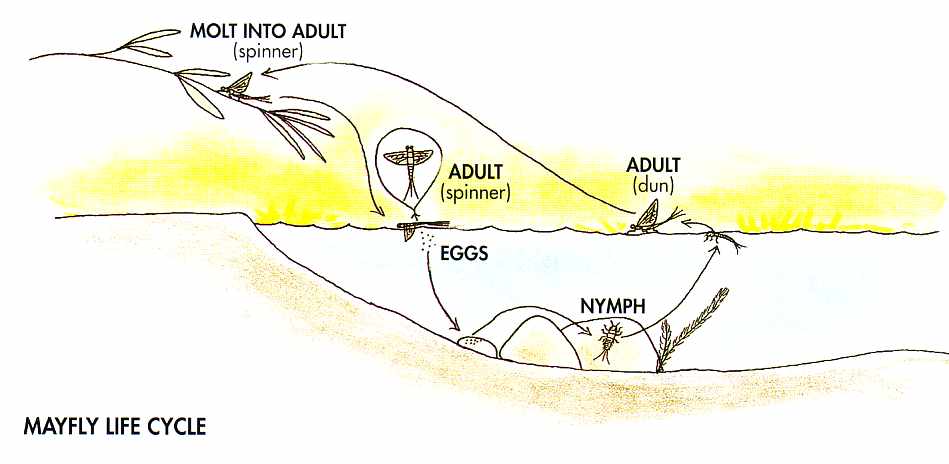
On the Land
WHAT DO THEY LOOK LIKE?
- They hold their wings together high above their back
- They almost always have 3 tail parts
WHAT DO THEY EAT?
- The adults do not eat – they only reproduce
WHO EATS THEM?
- Fish, Frogs, Birds, Other insects
HOW LONG DO THEY LIVE?
- As little as 2 hours and as long as 14 days
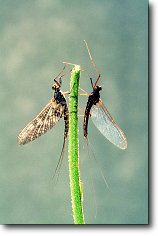
asihkhalάsəsso – Caddisflies
Order – Tricoptera
In the Water
WHAT DO THEY LOOK LIKE?
- Similar to worms with legs on one end
WHERE IN THE WATER DO THEY LIVE?
- Most live in cases they build out of sand, rock, twigs, or leaf pieces held together with the silk they produce.
- Some of those who are free-living spin nets to catch food
- Some replace their case as they grow, others renovate the old one, some carry the case around, others stick them to an object.
- One group of big caddisflies are predator
WHAT DO THEY EAT?
- Almost anything (plants, bacteria, other insects) in many different ways (shredding, scraping or filtering)
WHO EATS THEM?
- Fish, other insects
- Easier to catch because they drift a lot
HOW LONG DO THEY LIVE?
- Between 2 weeks and 1 year
HOW CLEAN DOES THEIR WATER NEED TO BE?
- Some species need very clean water
- Others can tolerate much higher levels of pollution
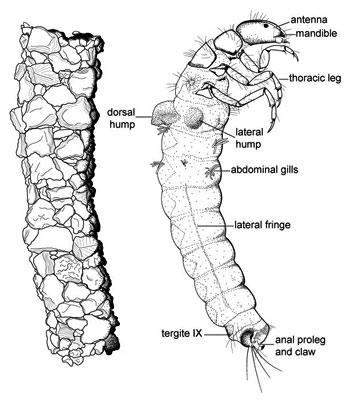
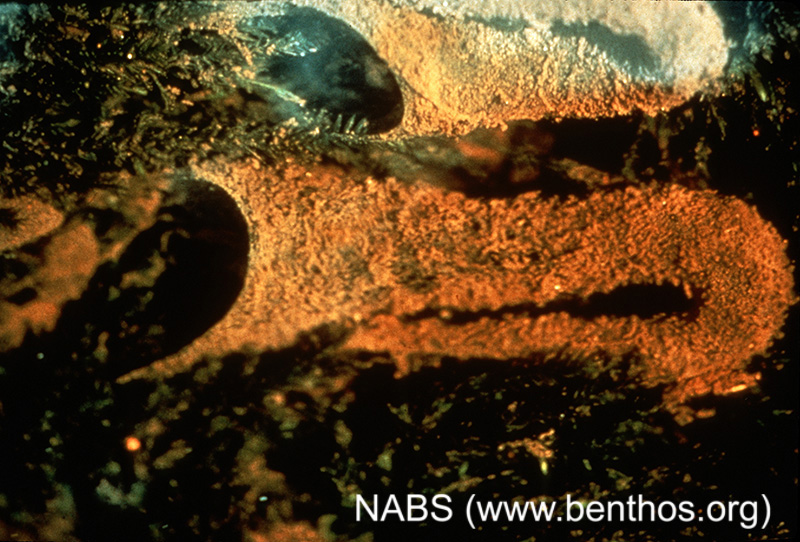
Leaving the Water (Emerging)
- Most rise to the surface and struggle through – usually taking flight quickly once they’re out of the water, but slow species can drift long distances half submerged.
- Others crawl out onto rocks or sticks.
- Some rise to the surface and swim quickly across it to shore.
- All have mandibles to chew their way out of their cocoon and emerge.
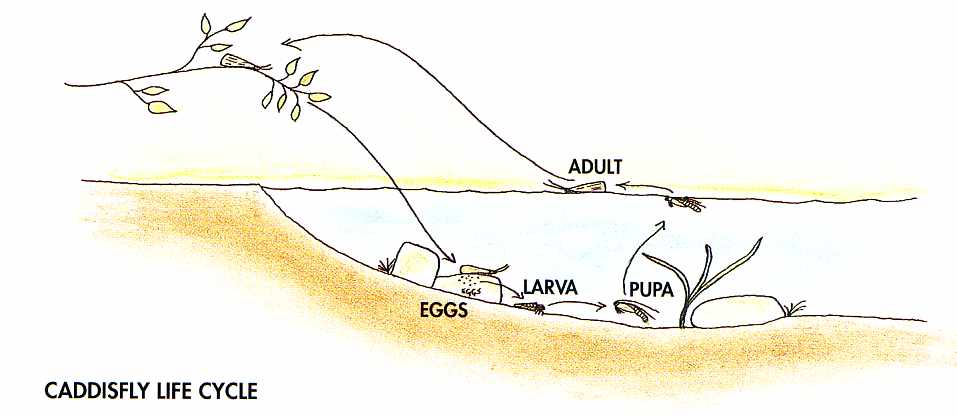
On the Land
WHAT DO THEY LOOK LIKE?
- Wings are held tent-like over the abdomen
WHAT DO THEY EAT?
- If they eat it is only liquids
WHO EATS THEM?
- Fish, Frogs, Birds, Other insects
HOW LONG DO THEY LIVE?
- Between a few days and a few months
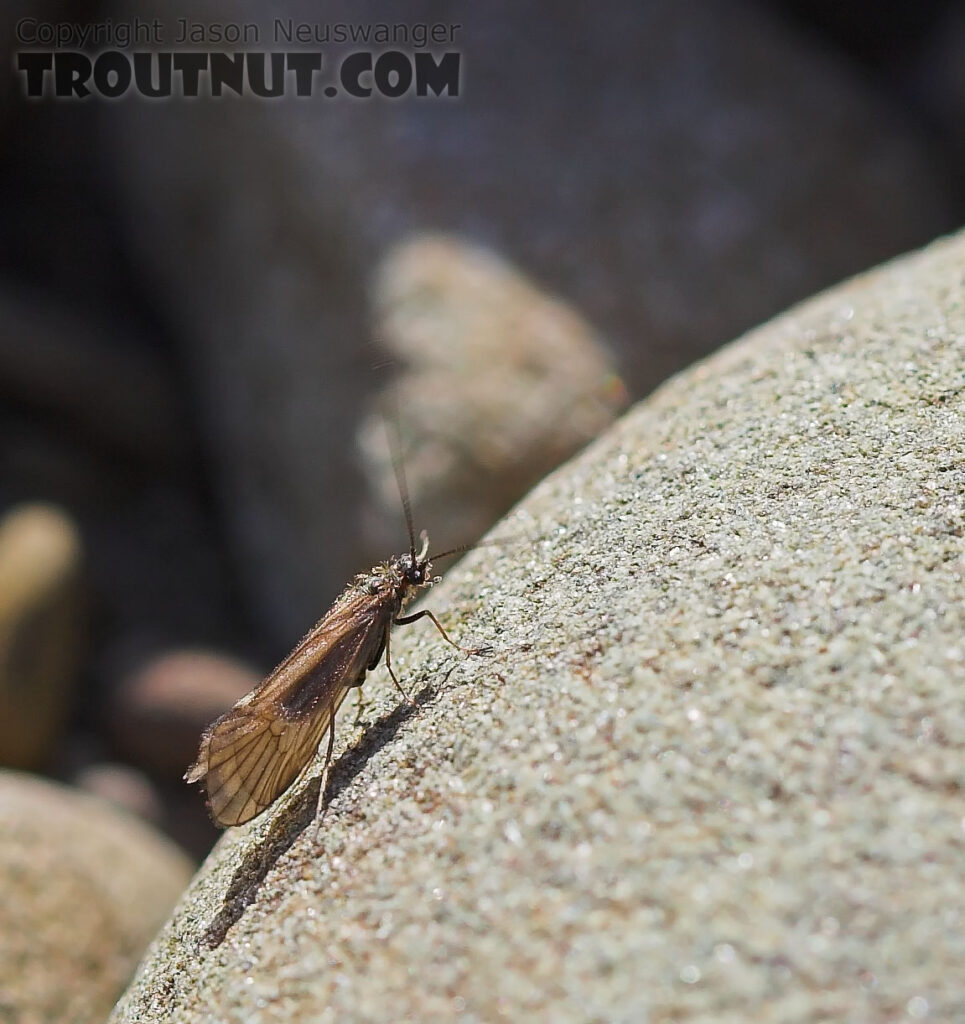
ačəssahtəkʷe – Dragon and Damselflies
Order – Odonata
For more information on the dragonflies and damselflies in Maine click here
Dragonflies
Dragonflies in the Water
WHAT DO THEY LOOK LIKE?
- Sturdy bodies with wing pads
WHERE IN THE WATER DO THEY LIVE?
- Slow moving or still water.
- They crawl around or swim by intaking water through their mouths and propelling it out their posteriors like a tiny jet
WHAT DO THEY EAT?
- Other insects – they are extremely good predators
WHO EATS THEM?
- Fish
HOW LONG DO THEY LIVE?
- Less than 1 year and up to 4 years
- Molting between 8 and 15 times
HOW CLEAN DOES THEIR WATER NEED TO BE?
- Generally need clean water
- Can tolerate lower water quality than some other insects
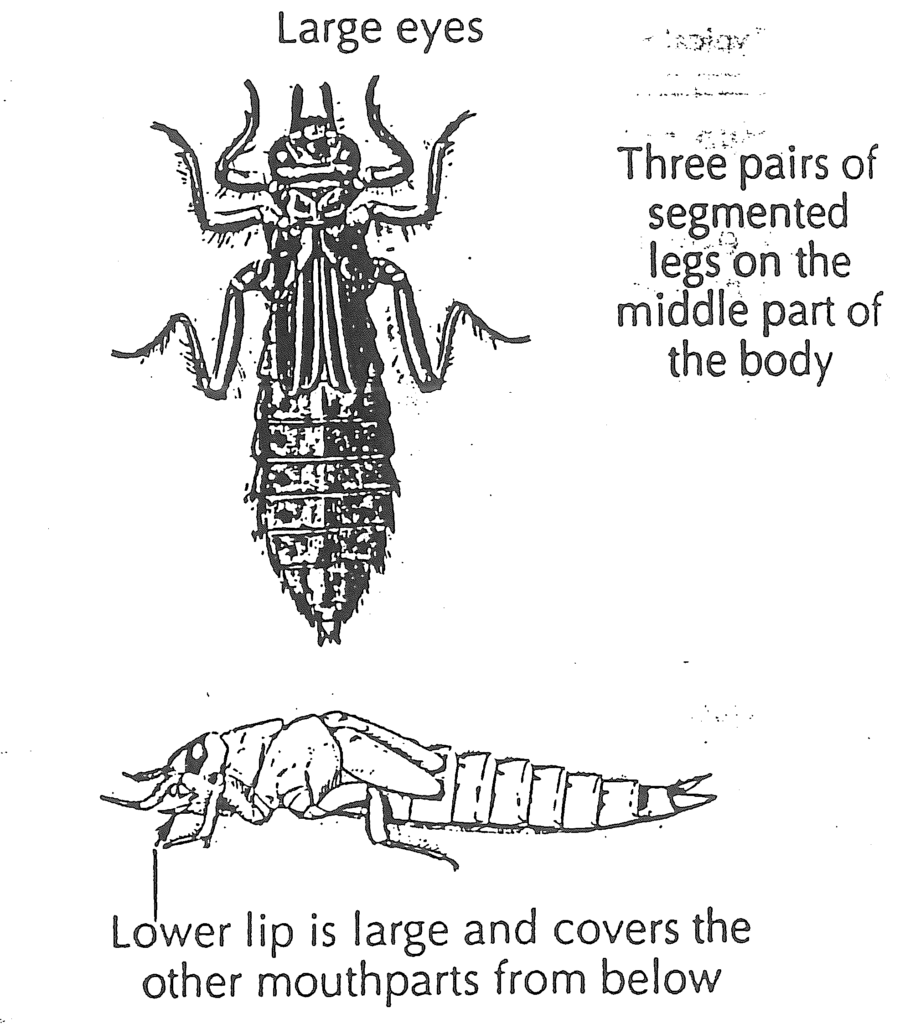
Dragonflies Leaving the Water (Emerging)
- They crawl out of the water
- Their back splits open and they begin to push themselves out of their old skeleton
- They fill up their wings and abdomen with fluid
- They get rid of the excess fluid and fly away
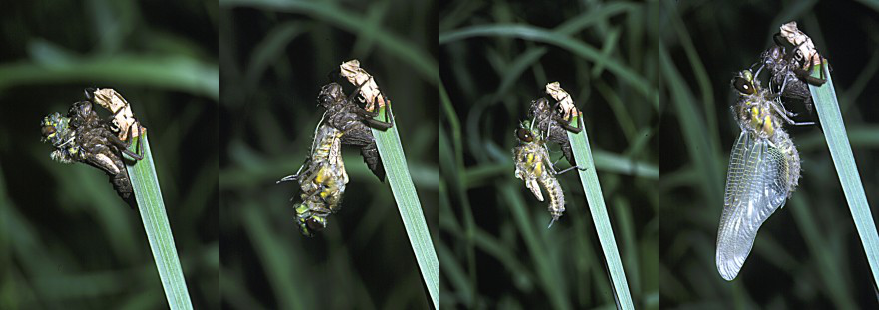
Dragonflies on the Land
WHAT DO THEY LOOK LIKE?
- After landing wings are held out to the sides
WHAT DO THEY EAT?
- Large numbers of insects
WHO EATS THEM?
- Birds
HOW LONG DO THEY LIVE?
- A few weeks to a few months
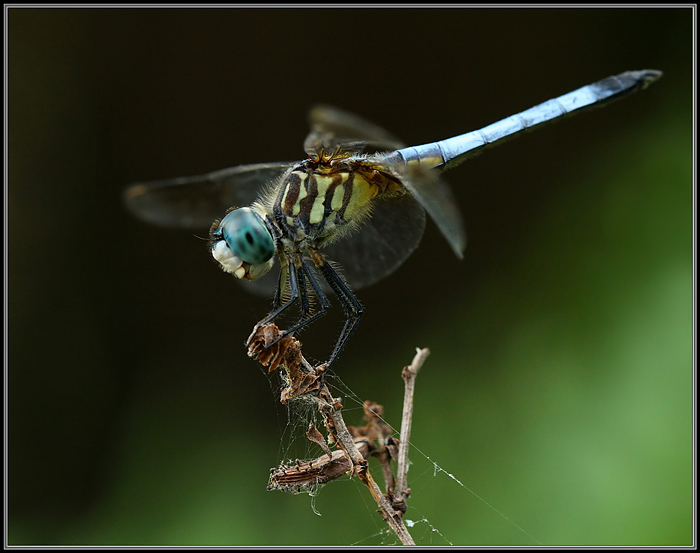
DAMSELFLIES
Damselflies in the Water
WHAT DO THEY LOOK LIKE?
- Slender bodies with wing pads
WHERE IN THE WATER DO THEY LIVE?
- Slow moving or still water.
- They swim by awkwardly wiggling.
WHAT DO THEY EAT?
- Other insects – they are fierce predators
WHO EATS THEM?
- Fish
HOW LONG DO THEY LIVE?
- Less than 1 year and up to 4 years
- Molting between 8 and 15 times
HOW CLEAN DOES THEIR WATER NEED TO BE?
- Generally need clean water
- Can tolerate lower water quality than some other insects
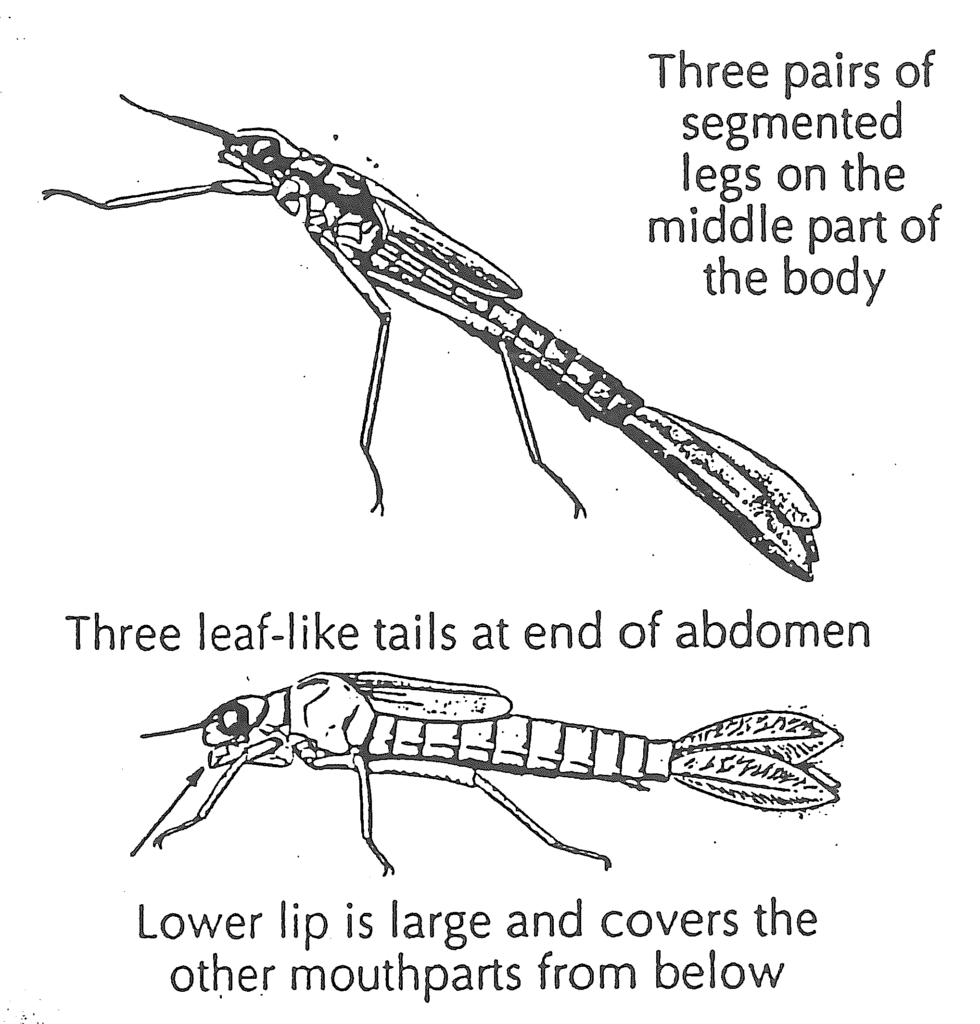
Damselflies Leaving the Water (Emerging)
- They crawl out of the water
- Their back splits open and they begin to push themselves out of their old skeleton
- They fill up their wings and abdomen with fluid
- They get rid of the excess fluid and fly away
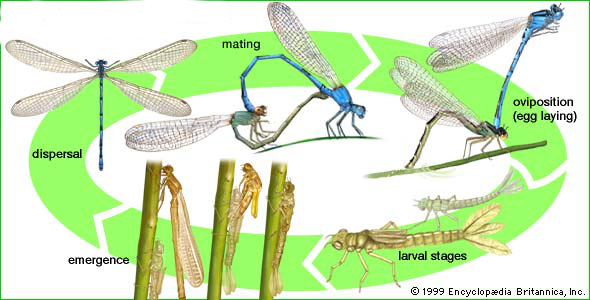
Damselflies on the Land
WHAT DO THEY LOOK LIKE?
- After landing wings are held folded together above the back
WHAT DO THEY EAT?
- Large numbers of insects
WHO EATS THEM?
- Birds
HOW LONG DO THEY LIVE?
- A few weeks to a few months
